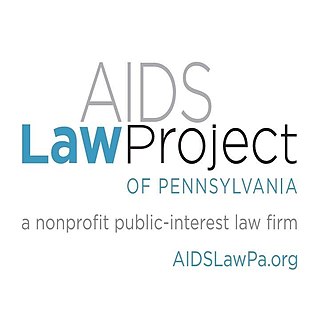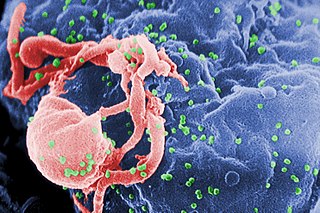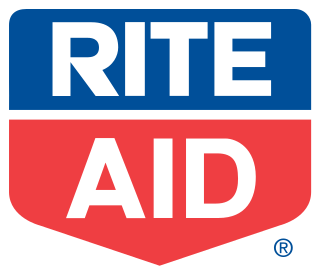
The Family Educational Rights and Privacy Act of 1974 is a United States federal law that governs the access to educational information and records by public entities such as potential employers, publicly funded educational institutions, and foreign governments.

Medical privacy or health privacy is the practice of maintaining the security and confidentiality of patient records. It involves both the conversational discretion of health care providers and the security of medical records. The terms can also refer to the physical privacy of patients from other patients and providers while in a medical facility. Modern concerns include the degree of disclosure to insurance companies, employers, and other third parties. The advent of electronic medical records (EMR) and patient care management systems (PCMS) have raised new concerns about privacy, balanced with efforts to reduce duplication of services and medical errors.

The California special election of 2005 was held on November 8, 2005 after being called by Governor Arnold Schwarzenegger on June 13, 2005.

The Airport Line is a route of the SEPTA Regional Rail commuter rail system in Philadelphia, Pennsylvania, which officially runs between Philadelphia International Airport through Center City to Temple University station. In practice, however, only a few trains originate or terminate at Temple; most are through routed with lines to the north, primarily the Warminster Line, with some through-routed trains originating and terminating at Glenside.

Walnut Hill station is a defunct SEPTA Regional Rail station in Abington Township, Montgomery County, Pennsylvania. Located on Moredon Road, it served the Fox Chase/Newtown Line. SEPTA closed the station in 1983.

Pre-exposure prophylaxis (PrEP) is the use of drugs to prevent disease in people who have not yet been exposed to the disease-causing agent. The term typically refers to the use of antiviral drugs as a strategy for the prevention of HIV/AIDS.
Whalen v. Roe, 429 U.S. 589 (1977), was a case brought before the Supreme Court of the United States. The case involved a New York state law requiring reporting and storage of information concerning all Schedule II drug prescriptions. Physicians were required to report the name of the prescribing physician; the dispensing pharmacy; the drug and dosage; and the name, address, and age of the patient. This information was then stored by the New York Department of State.

Sensitive Security Information (SSI) is a category of sensitive but unclassified information under the United States government's information sharing and control rules. SSI is information obtained in the conduct of security activities whose public disclosure would, in the judgement of specified government agencies, harm transportation security, be an unwarranted invasion of privacy, or reveal trade secrets or privileged or confidential information. SSI is governed by Title 49 of the Code of Federal Regulations (CFR), parts 15 and 1520.

The Ryan White Comprehensive AIDS Resources Emergency Act, was an act of the United States Congress and is the largest federally funded program in the United States for people living with HIV/AIDS. The act sought funding to improve availability of care for low-income, uninsured and under-insured victims of AIDS and their families. The act is named in honor of Ryan White, an Indiana teenager who contracted AIDS through a tainted hemophilia treatment. He was diagnosed with AIDS in 1984 and was subsequently expelled from school because of the disease. White became a well-known advocate for AIDS research and awareness, until his death on April 8, 1990.
A Health and welfare trust (HAWT) or Health and welfare plan (HAWP) is a tax-free vehicle for financing a corporation's healthcare costs for their employees. They were introduced in 1986 by Canada Revenue Agency (CRA) in their interpretation bulletin entitled IT-85R2. Many companies offer this product to Canadian employers.

Connecticut Department of Public Safety v. Doe, 538 U.S. 1 (2003), was a United States Supreme Court case regarding the constitutionality of the Connecticut sex offender registration requirement which required public disclosure of information on sex offenders after they had been released from incarceration.
AIDS Drug Assistance Programs are a set of programs in all 50-states in the United States that provide Food and Drug Administration-approved HIV treatment drugs to low income patients in the U.S.
A Doe subpoena is a subpoena that seeks the identity of an unknown defendant to a lawsuit. Most jurisdictions permit a plaintiff who does not yet know a defendant's identity to file suit against John Doe and then use the tools of the discovery process to seek the defendant's true name. A Doe subpoena is often served on an online service provider or ISP for the purpose of identifying the author of an anonymous post.

The Lansdale/Doylestown Line is a SEPTA Regional Rail line connecting Center City Philadelphia to Doylestown in Bucks County, Pennsylvania. Until 1981, diesel-powered trains continued on the Bethlehem Branch from Lansdale to Quakertown, Bethlehem, and Allentown. Restored service has been proposed, but is not planned by SEPTA. The line is currently used by the East Penn Railroad, serving Quakertown's industrial complexes and distribution centers.

Southeastern Pennsylvania Transportation Authority (SEPTA) operates a 25 Hz traction power system in the vicinity of Philadelphia, Pennsylvania, that it inherited from the Reading Railroad. This system is separate from but similar to the system designed by the Pennsylvania Railroad, which is now operated by Amtrak. SEPTA's trains can run over either system because the voltage and frequency presented to the locomotive are essentially identical. However, the ex-Reading system is not electrically connected to the ex-PRR system.
Federal Communications Commission v. AT&T Inc., 562 U.S. 397 (2011), was a United States Supreme Court case on aspects of corporate personhood. It held that the exemption from Freedom of Information Act disclosure requirements for law enforcement records which "could reasonably be expected to constitute an unwarranted invasion of personal privacy" does not protect information related to corporate privacy.

Doe v. Shurtleff, 628 F.3d 1217, was a United States Court of Appeals for the Tenth Circuit case assessing the constitutionality of Utah Code Ann. § 77-27-21.5, a law that requires sex offenders to register their internet identifiers with the state in order to "assist in investigating kidnapping and sex-related crimes, and in apprehending offenders." In this case, a convicted sex offender, appearing anonymously as John Doe, appealed a decision by the United States District Court for the District of Utah to vacate an order enjoining the enforcement of Utah Code Ann. § 77-27-21.5. Even though Doe did not dispute the state's interest in enacting such a statute, he believed that the statute's enforcement ran afoul of his:
Doe v. Borough of Barrington was a legal case in the US. In the case, it was decided that a family's privacy rights were violated when a police officer told their neighbors that the husband had AIDS after he had relayed that information to the police during a search. Because the information was given to a state employee in confidence, and because there was no compelling government interest in giving that information to the neighbors, the police violated the family's privacy rights by telling the neighbors of the husband's condition. It also caused substantial harm to the family due to the stigma that was attached to the wife and children after this information was revealed. Some of the names were changed to protect their identities.
With an estimated 120,000 people living with HIV/AIDS, the HIV/AIDS epidemic in Colombia is consistent with the epidemic in much of Latin America as a whole, both in terms of prevalence of infection and characteristics of transmission and affected populations. Colombia has a relatively low rate of HIV infection at 0.4%, though certain groups, particularly men who have sex with men, bear the burden of significantly higher rates of infection than the general population. Colombia's health care system and conception of a "right to health," created by the T-760 decision of 2008, have revolutionized access to HIV treatment. Despite this, the quality of health insurance and treatment for HIV has often been disputed.

The AIDS Law Project of Pennsylvania is a nonprofit, public-interest law firm that provides free legal service to individuals living with and affected by HIV and AIDS. Founded in 1988, it is the only public interest law firm in the nation that is exclusively dedicated to helping those with HIV and AIDS. AIDS Law Project is headquartered in Philadelphia with an additional office in Southern New Jersey.
















